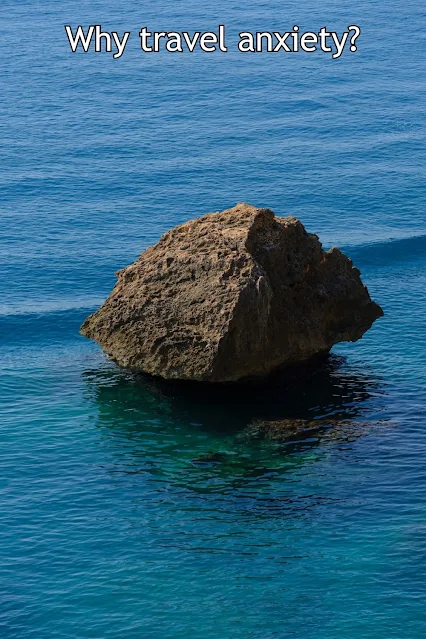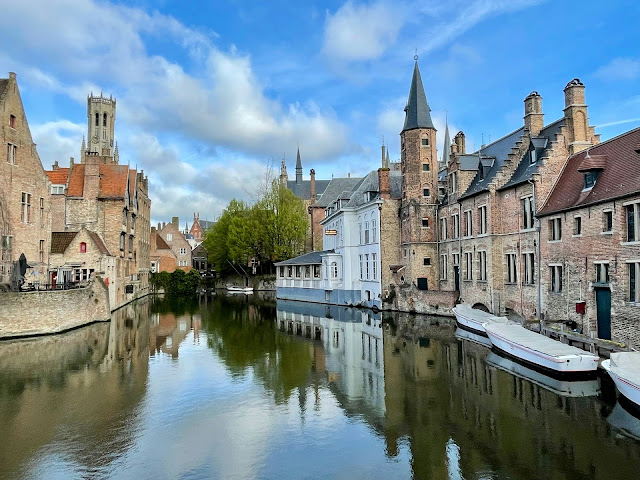Understanding and Overcoming Travel Anxiety
Traveling is often considered a thrilling and enriching experience, offering the chance to explore new cultures, cuisines, and landscapes. However, for many individuals, the excitement of travel is overshadowed by a sense of unease and apprehension known as travel anxiety.
This blog post delves into the various factors contributing to travel anxiety and provides strategies to overcome it, ensuring that your travel adventures are more enjoyable and fulfilling.
The Roots of Travel Anxiety
Fear of the Unknown: One of the primary sources of travel anxiety is the fear of the unknown. Leaving the familiar surroundings and routines can trigger feelings of uncertainty and discomfort, leading to anxiety.
Safety Concerns: Traveling to unfamiliar places can raise safety concerns, especially if you're unsure about the local customs, crime rates, or medical facilities. The fear of encountering risky situations can heighten anxiety levels.
Logistical Challenges: Planning a trip involves numerous logistical elements, such as transportation, accommodations, and itineraries. For individuals who struggle with organization and decision-making, the thought of managing these details can be overwhelming.
Social Anxiety: Interacting with new people, navigating language barriers, and engaging in social situations can be daunting for those with social anxiety. The pressure to interact in unfamiliar settings can contribute to travel-related stress.
Fear of Flying: For some, the journey itself triggers anxiety, with the fear of flying being a common issue. The lack of control and the potential for turbulence can make air travel particularly anxiety-inducing.
Overcoming Travel Anxiety
Preparation is Key: Researching your destination thoroughly can alleviate some of the fear of the unknown. Familiarize yourself with local customs, transportation options, and emergency contacts. Having a detailed itinerary can also provide a sense of structure and control.
Gradual Exposure: If social anxiety is a concern, consider exposing yourself to social situations in your everyday life before your trip. Practice speaking with strangers, whether it's asking for directions or striking up casual conversations.
Breathing and Relaxation Techniques: Learn and practice relaxation techniques such as deep breathing, meditation, or progressive muscle relaxation. These methods can help manage anxiety during moments of stress, like before a flight or in unfamiliar situations.
Positive Visualization: Visualize your trip going smoothly and imagine yourself enjoying each aspect of it. Positive visualization can help shift your focus from anxious thoughts to a more optimistic outlook.
Travel Companions: Consider traveling with a friend or family member who can provide emotional support. Having someone familiar by your side can ease feelings of isolation and anxiety.
Professional Help: If travel anxiety significantly impacts your life, consider seeking help from a mental health professional. They can provide coping strategies and even prescribe medications if necessary.
Travel anxiety is a common challenge that can prevent individuals from fully enjoying the benefits of travel. By understanding the root causes of travel anxiety and implementing strategies to manage it, you can embark on your journeys with more confidence and excitement. Remember that overcoming travel anxiety is a gradual process, and with each successful trip, you'll likely find your anxiety diminishing and your ability to enjoy new experiences growing.
What is travel anxiety?
Travel anxiety refers to the feelings of unease, nervousness, or apprehension that some individuals experience when planning, preparing for, or embarking on a journey. It can stem from various factors, including fear of the unknown, safety concerns, and social anxiety.
Why do some people experience anxiety when traveling?
There are several reasons why people might experience anxiety while traveling. These include fear of unfamiliar environments, safety concerns, logistical challenges, social interactions in new settings, and specific fears like fear of flying.
How can I prepare for a trip to reduce travel anxiety?
Research your destination thoroughly to familiarize yourself with local customs and amenities. Create a detailed itinerary to give yourself a sense of structure and control. Having a plan in place can help ease anxiety related to the unknown.
What strategies can help me overcome travel anxiety?
Strategies to overcome travel anxiety include gradual exposure to social situations, practicing relaxation techniques, positive visualization, traveling with a companion, seeking professional help, and addressing the root causes of your anxiety.
How can I manage anxiety during flights?
If fear of flying is a significant source of anxiety, you can try deep breathing exercises, distraction techniques, and positive visualization. You might also consider consulting a mental health professional who specializes in treating phobias.
Is travel anxiety a common issue?
Yes, travel anxiety is a common challenge that many people experience. The unfamiliarity of new places, the need to adapt to different environments, and the various stressors associated with travel can contribute to feelings of anxiety.
Can travel companions help reduce travel anxiety?
Traveling with a companion, whether a friend, family member, or partner, can provide emotional support and make unfamiliar situations feel less intimidating. Having someone familiar by your side can help alleviate feelings of isolation.
When should I seek professional help for travel anxiety?
If travel anxiety significantly impacts your ability to plan, enjoy, or undertake trips, it might be beneficial to consult a mental health professional. They can provide you with coping strategies, offer guidance, and, if necessary, recommend medications.
Can positive visualization really help with travel anxiety?
Yes, positive visualization involves imagining your trip going smoothly and successfully, which can help shift your mindset from anxious thoughts to a more optimistic outlook. This technique can reduce stress and build confidence in handling travel-related challenges.
Are there any online resources for managing travel anxiety?
Yes, there are numerous online resources, articles, forums, and apps that offer tips and techniques for managing travel anxiety. These resources can provide valuable insights and practical advice to help you overcome your anxiety and enjoy your travels more fully.




Comments
Post a Comment
It's easy to leave a comment on our blog – anyone with a Google account can do it. We invite you to share your experiences by leaving a comment as well.